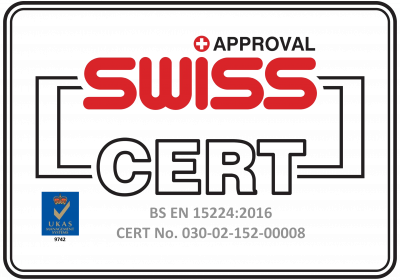Sperm Separation
Future in Fertility has already come!
Natural. Simple. Effective.
ZyMot devices collect the best-performing sperm for use in ART procedures, which can lead to better patient outcomes.
ZyMot devices prepare motile sperm from semen for use in ICSI, IUI and IVF procedures. These FDA and CE approved devices are the first of their kind in the global market.
ZyMot devices require up to 80% less hands-on tech time, which means fewer opportunities for human error. There is no prep and sperm separation can be standardized in clinical settings, reducing variability among lab personnel.
ZyMoT revolutionary tools simulate the natural barriers of the cervical and uterine pathway that sperm must overcome to fertilize an egg.
SCIENTIFIC RESULTS ΖΥΜΟΤ1-5
Reducing DNA fragmentation and reactive oxygen species (ROS) production
Increase in Sperm Mobility
Increase in fertility rates
IMPROVED RESULTS1,2,3
In comparison with the traditional procedures of sperm separatioν, ΖyMoT devices assist in:
- avoiding DGC and preserve normal sperm morphology, significantly reducing DNA fragmentation and reactive oxygen species (ROS) production
- efficiently isolating the healthiest, rapidly progressive sperm, to help achieve outcomes that matter.
- Increased fertility and euploidy rates.
- providing considerable time savings and standardization over conventional methods
Crete Fertility Centre uses ZyMoT devices with significant success, resulting in the improvement of the procedure and the quality of sperm used in IVF and ICSI treatments.
BIBLIOGRAPHY
- Asghar, W., Velasco, V., Kingsley, J. L., Shoukat, M. S., Shafiee, H., Anchan, R.M., Mutter, G. Tuzel, E. And Demirci, U. (2014), Selection of Functional Human Sperm with Higher DNA Integrity and Fewer Reactive Oxygen Species. Adv. Healthcare Mater., 3: 1671-1679. doi: 10.1002/adhm.201400058
- A.P. Dimakopoulou et al. Elevated semen oxidative stress in male partners as novel marker of recurrent pregnancy loss. ENDO 2019, New Orleans, March 24, 2019.
- C.N. Jayasena et al. Reduced testicular steroidogenesis and increased semen oxidative stress in male partners as novel marker of recurrent miscarriage. Clinical Chemistry. Volume 65, January 2019, p. 161.
- M.M. Quinn et al. Microfluidic sorting selects sperm for clinical use with reduced DNA damage compared to density gradient centrifugation with swim-up in split semen samples. Hum Reprod. July 10, 2018. doi: 10.1093/humrep/dey239.
- A. Broussard et al. Sperm DNA fragmentation (SDF) was most effectively improved by a sperm separation device compared to different gradient and swim-up methods. PCRS 2019, Indian Wells, April 5, 2019.




